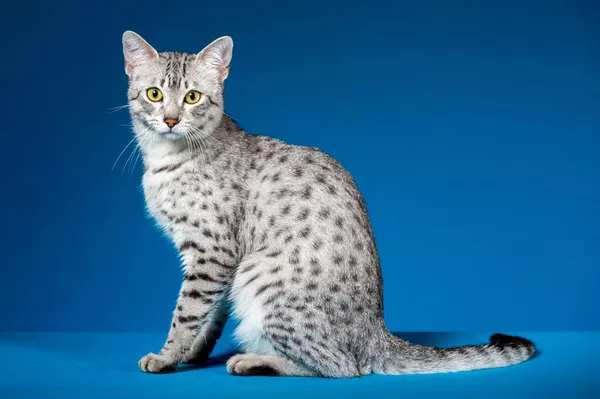Cats, known for their carnivorous nature, often evoke the question: Can cats eat raw meat? This inquiry delves into a broader discussion surrounding the dietary needs of our feline companions. As pet owners seek the best nutrition for their cats, the raw meat debate has gained momentum. In this comprehensive exploration, we aim to unravel the complexities, weigh the pros and cons, and ultimately answer the question: Is raw meat a suitable and safe option for our cats?
Understanding Cats’ Natural Diet
1. Evolutionary Roots
To comprehend the dietary requirements of cats, it’s crucial to delve into their evolutionary history. Domestic cats share a common ancestry with wildcats, and their digestive systems have adapted to a primarily meat-based diet over thousands of years. Unlike some omnivorous animals, cats have specific nutritional needs derived from consuming prey.
2. Carnivorous Traits
Cats exhibit distinct anatomical and physiological features that align with their carnivorous nature. Their sharp, pointed teeth are designed for tearing meat, and their short digestive tracts prioritize the rapid breakdown of protein. Furthermore, cats lack certain enzymes necessary for efficiently digesting plant-based foods.
The Raw Meat Diet: Pros and Cons
1. Potential Benefits
a. Nutrient Profile
Proponents of feeding raw meat to cats argue that it closely mimics their natural diet, providing essential nutrients crucial for their overall well-being. Raw meat is rich in proteins, amino acids, and natural enzymes, elements that support muscle development, immune function, and optimal organ health.
b. Dental Health
Chewing on raw meat and bones may contribute to improved dental health in cats. The gnawing action helps reduce plaque and tartar buildup, potentially preventing dental issues that commonly afflict cats.
c. Coat and Skin Health
Advocates also suggest that a raw meat diet enhances the coat and skin health of cats. The high levels of fatty acids in meat can contribute to a glossy coat and reduce skin irritations.
2. Potential Risks
a. Bacterial Contamination
One of the primary concerns associated with feeding raw meat is the risk of bacterial contamination. Raw meat can harbor harmful bacteria such as Salmonella and E. coli, posing a threat not only to the cat but also to human caregivers.
b. Nutritional Imbalance
Crafting a well-balanced raw meat diet requires meticulous attention to nutritional content. A lack of essential nutrients or an imbalance in the diet can lead to nutritional deficiencies, impacting the cat’s health over time.
c. Parasitic Infections
Raw meat may also carry parasites that can infect cats. From Toxoplasma gondii to various internal parasites, the risk of infection is a critical factor that pet owners must consider.
Crafting a Safe Raw Meat Diet for Cats
1. Consultation with Veterinarians
Before embarking on a raw meat diet for your cat, consulting with a veterinarian is paramount. Veterinary professionals can assess the specific needs of your cat, provide guidance on nutrition, and tailor a diet plan that aligns with their individual health requirements.
2. Quality and Sourcing
Choosing high-quality, fresh, and safe raw meat is essential. Opting for human-grade meat from reputable sources minimizes the risk of bacterial contamination and ensures the meat meets necessary health standards.
3. Supplementation
To address potential nutritional gaps in a raw meat diet, veterinarians may recommend supplements. These supplements can include vitamins, minerals, and other essential nutrients crucial for a cat’s well-rounded health.
4. Food Safety Measures
Implementing stringent food safety measures is non-negotiable when introducing raw meat into a cat’s diet. This involves proper handling, storage, and hygiene practices to mitigate the risk of bacterial contamination for both the cat and its human caregivers.
Debunking Myths and Misconceptions
As the raw meat diet trend gains popularity, various myths and misconceptions have surfaced. It’s imperative to debunk these notions to make informed decisions about feline nutrition.
1. Myth: Cats Can Digest Plant-Based Diets
Contrary to popular belief, cats are obligate carnivores, meaning their bodies require nutrients found in animal tissues. Plant-based diets do not provide the necessary nutrients, and attempting to force a cat into a vegetarian or vegan diet can lead to severe health issues.
2. Myth: Raw Meat Eliminates All Health Issues
While a raw meat diet may offer benefits, it is not a guaranteed cure-all for every health concern. Cats can still face various health issues even when on a well-structured raw meat diet, emphasizing the importance of holistic veterinary care.
3. Myth: Bones Are Completely Safe
While chewing on bones can contribute to dental health, it’s crucial to choose appropriate bones and monitor their consumption. Cooked bones, especially those prone to splintering, can pose a choking hazard or cause intestinal blockages.
See Also: 5 Best Kitten Foods of 2024
Conclusion:
In the pursuit of providing optimal nutrition for our feline companions, the raw meat debate underscores the need for a balanced and informed approach. While raw meat can offer benefits when carefully planned and executed, the potential risks demand thoughtful consideration. Consulting with veterinary professionals, sourcing high-quality meat, and prioritizing food safety measures are paramount to crafting a raw meat diet that enhances the health and well-being of our beloved cats. As the discourse continues, responsible pet ownership remains central to ensuring the best possible nutrition for our feline friends.


























